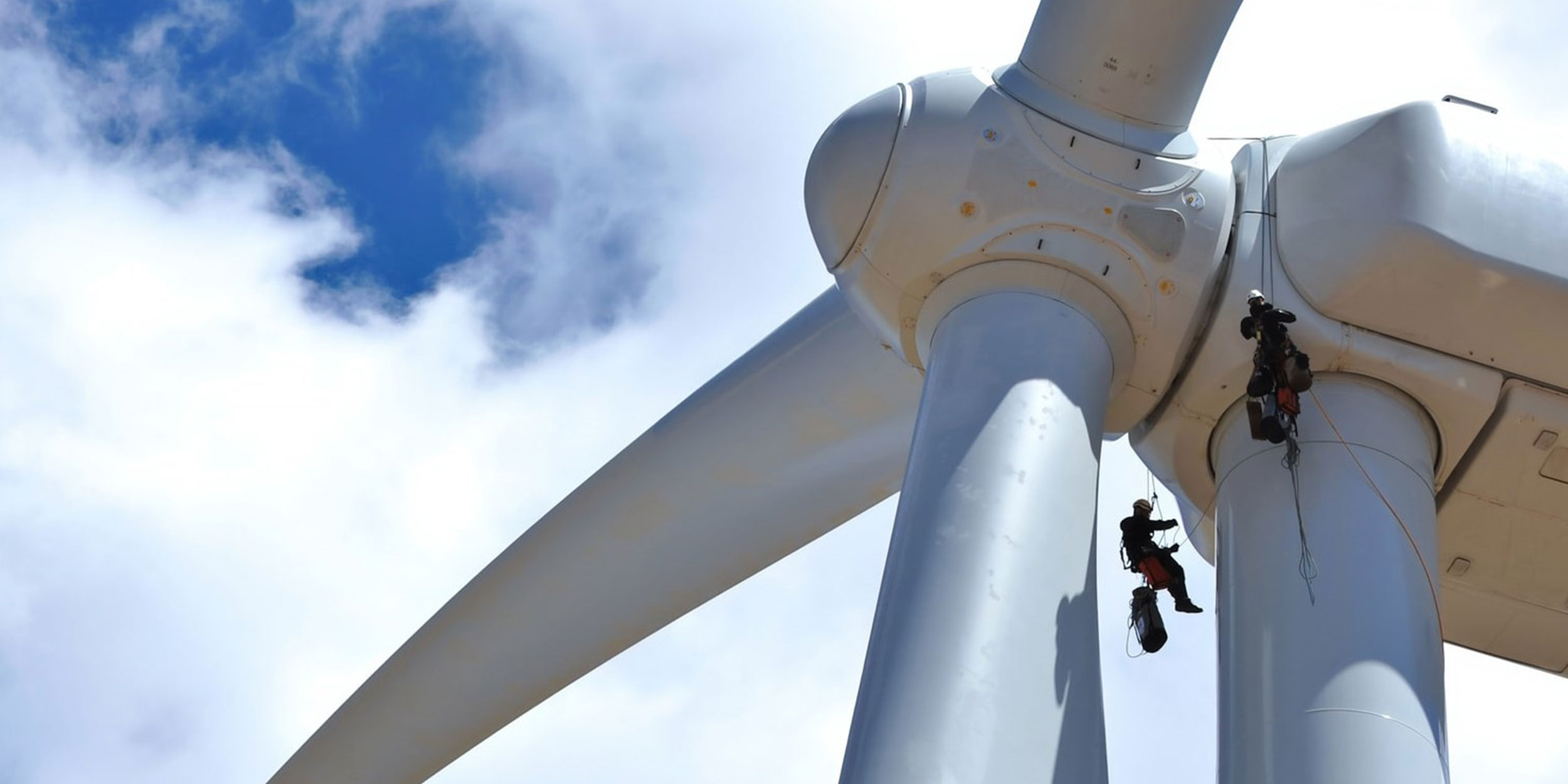Green jobs: How will climate change impact employment trends?
Future of workArticleFebruary 26, 2024
Will combatting climate change create new sustainable career opportunities or have a detrimental impact on the global jobs market? We look at five green jobs likely to thrive in the clean economy. From sustainable building to urban farming.
Climate change is clearly bad for the planet. But could it also be detrimental to your career – or do new green job opportunities await?
The push to put a brake on climate change and to cut emissions is certainly sobering news for the fossil fuel industries. The global oil, gas and coal sectors currently employ almost 18 million people but more than 5 million jobs could be lost by 2030 if the world is to meet its net-zero target by 2050, according to IEA estimates.
This sounds calamitous. But the bigger picture is much brighter as new opportunities in clean energy easily outweigh job losses in fossil fuels. According to the same IEA report, more than 17 million additional jobs could be created on a net basis by 2030 in areas such as electric vehicle and wind turbine manufacturing, solar panel installation, and in the construction of clean energy plants.
“The transition to a net-zero future will create new industries, new jobs and revitalize local economies,” says Linda Freiner, Chief Sustainability Officer at Zurich Insurance Group. “Approached in the right way, it can forge a path to a more resilient future encompassing new growth opportunities for businesses, which leads to new jobs being created. But what excites me, is that these new careers will be truly fulfilling as they will help to protect both our planet and our futures.”
As the goal of achieving net-zero powers an ever-increasing share of the global economy, here are five green careers likely to play a pivotal role:
1. Clean energy engineer
Traditional energy companies built around oil, gas and coal have always employed skilled technicians and engineers. Fortunately, greener versions of those same jobs are now increasingly on offer in the clean energy sector, where companies specializing in everything from hydroelectric power and biofuels to wind turbines and solar photovoltaics are thriving.
The clean energy sector is already a major global employer and represents over half of total energy sector jobs, having overtaken fossil fuels in 2021.
The solar photovoltaics sector currently employs 3.9 million workers, mainly engaged in installing new capacity, and could grow to 6.6 million by 2030. Employment in wind power generation could see similar growth from 1.5 million people to almost 5 million by 2030. It’s no wonder wind turbine technicians (up 44 percent) and solar panel installers (up 27 percent) are predicted to be among the fastest growing occupations in the U.S. between now and 2031.
New clean energy projects also drive employment in other sectors, such as workers employed to build and deploy new solar plants, wellheads, heat pumps and more.
2. Eco-builder
The building industry remains a major cause of pollution. According to the World Green Building Council, buildings are responsible for 39 percent of global energy-related carbon emissions.
However, there is a solid foundation for optimism. The increasing use of natural and environmentally friendly building materials and modern methods of construction – backed by new legislation – can reduce overall emissions by improving energy performance and decreasing building materials’ carbon footprint.
Inside the buildings of tomorrow, smart technology will help people use heat, light and other resources more efficiently. Building the greener homes and offices of the future (and retrofitting old ones to meet modern standards) is a huge undertaking requiring hundreds of specialist roles. The ILO predicts that there will be 6.5 million jobs in sustainable construction by 2030, making it the second-fastest growth sector behind clean energy.
3. Recycler in the new ‘circular economy’
According to Kate Raworth, an economist at the University of Oxford’s Environmental Change Institute: “Our future economy will thrive on reusing, repairing, refurbishing, remaking and repurposing – this transformation will create new kinds of creative and purposeful jobs.”
This new “circular economy” includes both conventional recycling, which reuses raw materials, and more creative careers in “upcycling,” such as sustainable fashion and furniture designers who make new products from rubbish and other waste. The ILO predicts that almost 6 million jobs can be created by moving away from an “extract-manufacture-use-discard” model and instead embracing recycling, reuse and repair with an emphasis on waste management (recycling) and services (repair, rent).
4. Urban farmer
Urban or vertical farming uses a combination of innovative architecture and the latest agricultural technology – including the use of artificial intelligence – to grow crops in cities. It helps the environment by using less land and water, cutting the use of pesticides and conserving fuel by shortening the food supply chain.
Green roof gardens and farms also benefit the urban environment by helping to insulate the buildings beneath, soaking up heavy rainfall and improving air quality. As well as creating employment and providing food to city dwellers, urban farming also helps to bind communities with many urban farms run by local community groups.
5. Sustainability expert
It’s important to bear in mind that the green jobs of the future will not only be found in sustainable sectors. All companies now have a role to play in greening the economy. Step forward the sustainability officer (or consultant) whose remit includes transforming business models, reducing a company’s energy and water use, emissions and waste, plus investigating its supply chains to ensure the goods and services it uses are sourced in a sustainable way.
As Zurich’s Linda Freiner says: “Sustainability is a global issue in which every 21st-century business – however big or small – has an urgent and meaningful role to play.”
What are green jobs?
Before you rush out and apply for a green career, it’s worth understanding what, exactly, makes a job “green.” There are various definitions, but the description from the UN’s International Labour Organization (ILO) is one of the most cited, which also highlights the variety of careers that are making a difference: “Green jobs reduce the consumption of energy and raw materials, limit greenhouse gas emissions, minimize waste and pollution, protect and restore ecosystems and enable enterprises and communities to adapt to climate change. In addition, green jobs have to be decent [i.e., fair and dignified].”

